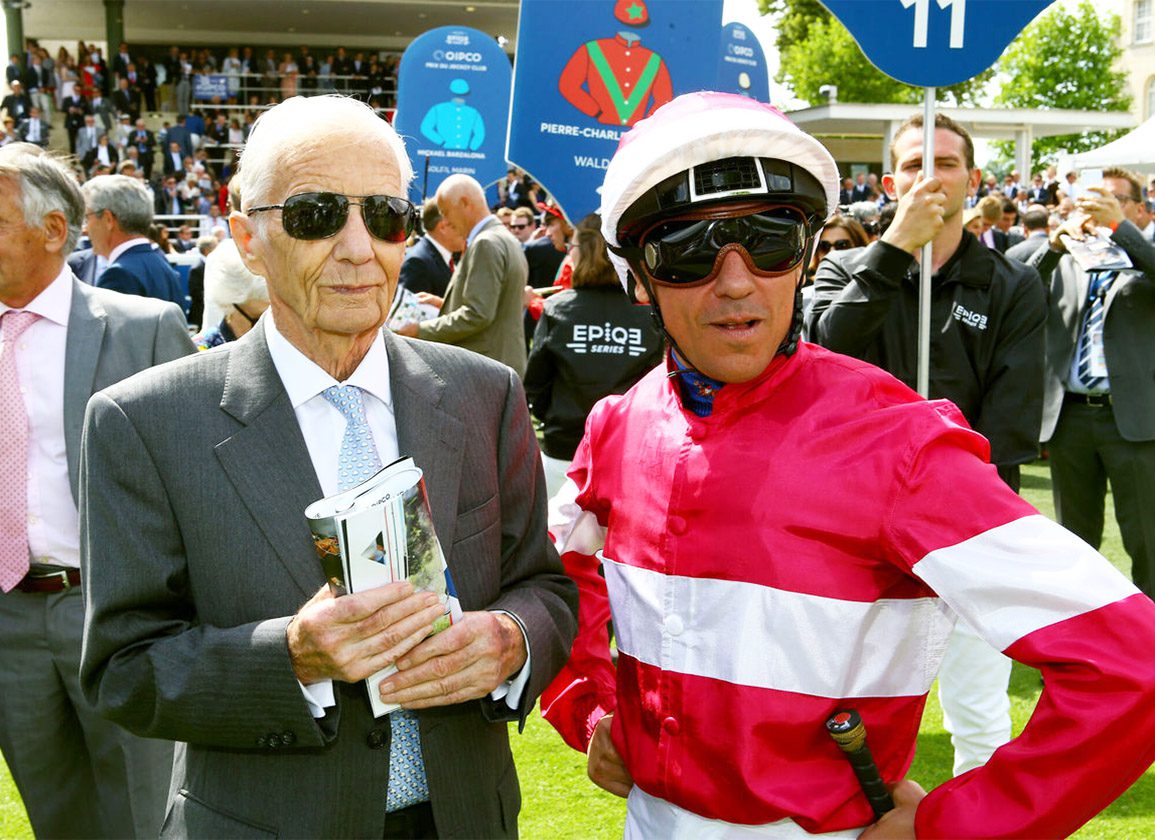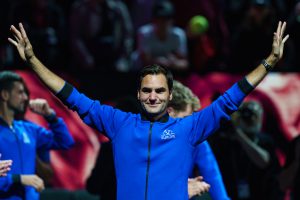By Paul Hayward
Frankie Dettori's retirement this winter has acquired a caveat: 'in theory.' So, in theory, the most famous jockey since Lester Piggott will ride in his last English Classic, the St Leger, at Doncaster this weekend.
More garlands, perhaps more tears shed. But Dettori's valedictory lap of world racing at 52-years-old is becoming a little complicated. With every big prize won, and each sparkling performance in the saddle, the fait accompli of his departure feels less secure.
To us, the grateful audience, the response to Dettori's radiant affirmation of his talent is straightforward: stay, don't go, U-turn, don't deprive us of the comfort of having the finest jockey perched astride our bets. In entertainment industry lore you go out at the top, leaving them wanting more. Yet there is always the risk of mistiming it. Not that any of us should be telling Dettori what to do. The dilemma, though, is relatable, for people in all professions. When have you reached 'enough'?
The cost to departing stars is high. Limelight, validation, the adrenaline-fix of winning, structure, discipline, purpose and…yes, the money. There is a Group 1 pot of riches that Dettori will have to forego if he wakes on Christmas day an ex-jockey. In these autumn months he will ride work on young horses that burn with promise. Someone else could be holding those reins next spring. Another grinning rider might be rolling in that money.
Dettori's quandary has echoes across the world of sport. The finite nature of any great career is better managed than denied. It hurts to call time. Many experience it as a bereavement. A superstar's halcyon days can become a clutter of photos and trophies that suffuse a home with a sense of loss. Some never properly adapt.
The finite nature of any great career is better managed than denied.
The memory of Roger Federer weeping courtside at London's O2 Arena last year after his final tennis match was a watery illustration of how painful and bewildering an ending can be. Federer cried so hard that Rafael Nadal found himself sobbing in sympathy. The Manchester United full-back Gary Neville walked off the pitch one day in February 2011 and retired there and then, after 602 appearances for his club. His body had betrayed him. Others cling on, refusing to believe the evidence of their decline or concealing it with bravado.
In many sports life is bisected in the mid-Thirties. Dettori is way beyond that point. Piggott was 59 when he finally retired, after a sensational comeback five years previously. Dettori's riding career spans 37 years, with plenty of undulations. However boyish his public face, he is a veteran in every sense. His current form however renders his age almost an abstraction.
Liberated, perhaps, by knowing the curtain is descending, he is riding with boldness, freedom and precision. His prime is not receding so much as finding fresh expression. His winning ride on Mostahdaf in the Juddmonte International at York on August 23 for example was not the act of a man raging against the dying of the light.
His recent joke about carrying on if a juicy retainer came his way may have been mischievous. But it was reasonable to wonder whether we were hearing the first crack in his plan to abdicate to a new life in London's Mayfair, where high society would love him, but the screens would show big races being won by horses he could have ridden. Here too he would be gambling. Racing offers no guarantees, even to household names, that this year's joy will stretch to next season.
Dettori's retirement will flatten us, for a while. We will slide though the gears of elegy, gratitude, nostalgia and a tinge of fear about whether anyone can replace him adequately on racing's billboard.
We know the farewell tour is due to take in Champions Day at Ascot, then marquee days overseas. We know too that he has three options: stick with his retirement plan, reverse it, or step down and come back later, after a change of pace. Piggott retired but returned at 54. Twelve days after renewing his licence he won the 1990 Breeders' Cup Mile on Royal Academy. “No moment in my career ever tasted sweeter,” Piggott said then. The difference is that there will be more facets to Dettori's post-riding life than there were to Lester Piggott's.
There are things we cannot see – the sacrifices made by the Dettori family, which he may want to repay; the toll of weight-management; the travelling and stress, the urge to try new things. Wanting to retire is easier than being forced to. We can only guess how much of Dettori's exuberance this summer is rooted in a sense of impending liberation.
With every sunset comes a fear of the dark. Nobody in racing beyond his rivals in the weighing room wants to say goodbye to Frankie Dettori (even they will feel conflicted, because he brings the crowds in). This feels like a very public dilemma. In reality, it's intensely personal.
Not a subscriber? Click here to sign up for the daily PDF or alerts.







